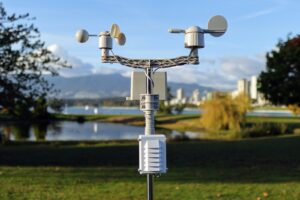The Strategic Benefits of IoT Integration for Smart Cities
Enhanced Operational Efficiency through IoT Integration
The incorporation of IoT into digital transformation plans offers smart cities a multitude of strategic benefits, primarily centered around enhanced operational efficiency. Smart cities, like those in Saudi Arabia and the UAE, are increasingly leveraging IoT technologies to streamline city operations, improve infrastructure management, and deliver superior public services. The integration of IoT enables real-time monitoring and control of various urban systems, from traffic management to energy consumption.
For instance, smart traffic management systems equipped with IoT sensors can optimize traffic flow, reduce congestion, and enhance overall transportation efficiency. In cities like Riyadh and Dubai, these systems provide actionable insights that allow for dynamic adjustments to traffic signals and road usage patterns. This not only alleviates traffic issues but also contributes to a significant reduction in carbon emissions, aligning with broader environmental goals. The benefits extend to utilities management as well, where IoT-driven smart grids enable better energy distribution and conservation, enhancing the city’s sustainability efforts.
Improved Quality of Life and Public Services
Another substantial benefit of integrating IoT into smart city frameworks is the improvement in the quality of life and public services. IoT technologies enable cities to provide more efficient and responsive services to their residents, ranging from waste management to healthcare. For example, smart waste management systems use IoT sensors to monitor the fill levels of trash bins and optimize waste collection routes, resulting in cleaner streets and reduced operational costs.
In healthcare, IoT solutions facilitate remote patient monitoring and telemedicine services, enhancing access to medical care and improving health outcomes. Cities like Dubai have embraced IoT to implement advanced healthcare solutions, such as smart health monitoring devices and connected medical equipment. These innovations ensure timely medical interventions and better patient management, thereby elevating the overall quality of healthcare services provided to residents.
Successful Examples of IoT Integration in Smart Cities
Several cities worldwide, including Riyadh and Dubai, showcase successful examples of IoT integration into their digital transformation strategies. In Riyadh, the implementation of smart water management systems has revolutionized the way the city manages its water resources. IoT sensors and analytics provide real-time data on water usage and leakages, enabling efficient resource management and reducing water waste.
Dubai has taken significant strides with its Smart Dubai initiative, which aims to transform the city into the world’s smartest and happiest city. The initiative incorporates IoT across various domains, including transportation, healthcare, and public safety. For example, Dubai’s smart parking solutions use IoT sensors to guide drivers to available parking spots, reducing congestion and improving the overall parking experience. These successful implementations highlight the tangible benefits of IoT integration in enhancing urban living and driving digital transformation.
Driving Innovation and Sustainability with IoT
Fostering Innovation through IoT Technologies
IoT integration not only benefits smart cities through improved operational efficiency and service delivery but also plays a pivotal role in fostering innovation. By harnessing the power of IoT, cities can create a platform for developing and testing new technologies and solutions that address urban challenges. This innovative spirit is particularly evident in the UAE, where smart city projects are at the forefront of technological advancements.
For instance, the use of IoT in smart grid technology allows for the integration of renewable energy sources and the development of more sustainable energy systems. Cities like Dubai are pioneering the use of IoT to manage solar energy systems and electric vehicle charging networks, contributing to a greener and more sustainable urban environment. The continuous evolution of IoT technologies provides smart cities with the tools needed to stay ahead of emerging trends and create innovative solutions that meet the needs of their residents.
Promoting Sustainable Urban Development
Sustainability is a core focus for many smart cities incorporating IoT into their digital transformation plans. IoT technologies enable cities to monitor and manage environmental factors such as air quality, energy usage, and water consumption more effectively. By leveraging IoT data, cities can implement strategies to reduce their environmental footprint and promote sustainable urban development.
In Riyadh and Dubai, IoT-enabled environmental monitoring systems help track pollution levels, manage waste, and optimize energy consumption. These systems provide valuable insights that inform policy decisions and urban planning efforts aimed at creating more sustainable and resilient cities. The integration of IoT into sustainability initiatives not only improves the quality of urban environments but also supports broader goals related to climate action and resource conservation.
Enabling Effective Project Management in Smart Cities
Effective project management is crucial for the successful implementation of IoT solutions in smart cities. The integration of IoT technologies requires meticulous planning, coordination, and execution to ensure that projects deliver the desired outcomes. In cities like Riyadh and Dubai, project management practices are essential for overseeing the deployment of smart city initiatives and ensuring that they align with strategic goals.
IoT projects often involve multiple stakeholders, including government agencies, technology providers, and community organizations. Successful project management involves coordinating these stakeholders, managing resources, and monitoring progress to ensure that IoT solutions are implemented efficiently and effectively. By adopting robust project management practices, smart cities can navigate the complexities of IoT integration and achieve their digital transformation objectives.
Conclusion
In summary, the integration of IoT into smart city frameworks offers numerous benefits, including enhanced operational efficiency, improved quality of life, and the promotion of innovation and sustainability. Successful examples from cities like Riyadh and Dubai demonstrate the transformative impact of IoT technologies on urban living. As smart cities continue to embrace IoT, they pave the way for a more connected, efficient, and sustainable future, setting a benchmark for others to follow in their digital transformation journey.
—
#SmartCities #IoTIntegration #DigitalTransformation #UrbanInnovation #SaudiArabia #UAE #Riyadh #Dubai #ArtificialIntelligence #Blockchain #TheMetaverse #GenerativeAI #ModernTechnology #BusinessSuccess #LeadershipSkills #ProjectManagement













